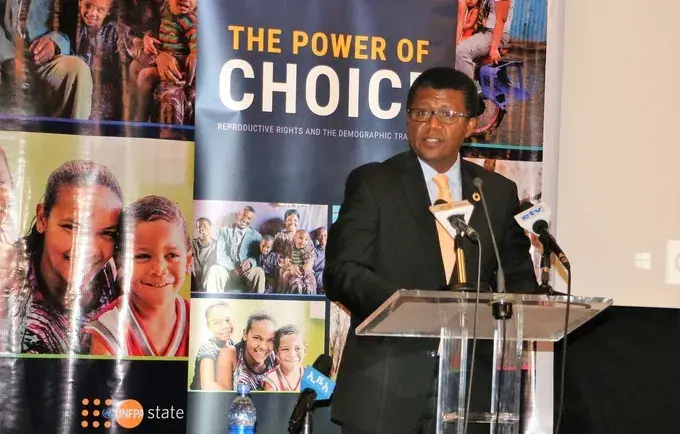Women bear a disproportionate burden of climate change, but have so far been largely overlooked in the debate about how to address problems of rising seas, droughts, melting glaciers and extreme weather, conclude UNFPA's annual flagship report, The State of World Population 2009. UNFPA Ethiopia has launched the report at a ceremony held today here in Addis Ababa.
The report notes that the poor are especially vulnerable to the effects of climate change, and the majority of the 1.5 billion people living on $1 a day or less are women. The poor are more likely to depend on agriculture for a living and therefore risk going hungry or losing their livelihoods when droughts strike, rains become unpredictable and hurricanes move with unprecedented force. The poor tend to live in marginal areas, vulnerable to floods, rising seas and storms.
Making a keynote address at the launching ceremony Mr. Mekonnen Manyazewal, State Minister of Finance and Economic Development said "Women are among the most vulnerable to climate. Climate induced disasters like drought and floods force women to work harder to secure food, water, and energy for their home."
The report draws attention to populations in low-lying coastal areas that are vulnerable to climate change and calls on governments to plan ahead to strengthen risk reduction, preparedness and management of disasters and address the potential displacement of people.
Mr. Fidel Sarassoro, UN Resident Coordinator in Ethiopia, said on his part on the occasion that "in building resilience to climate change, population dynamics need to be accounted for, as patterns of population growth, consumption and production are key to successfully adapt to climate change and mitigating its effects with a clear linkage between slowing population growth and green house gas emission patterns."
Research cited in the report shows that women are more likely than men to die in natural disasters-including those related to extreme weather-with this gap most pronounced where incomes are low and status differences between men and women are high.
The State of World Population 2009 argues that the international community's fight against climate change is more likely to be successful if policies, programmes and treaties take into account the needs, rights and potential of women.
The report shows that investments that empower women and girls-particularly education and health-bolster economic development and reduce poverty and have a beneficial impact on climate. Girls with more education, for example, tend to have smaller and healthier families as adults. Women with access to reproductive health services, including family planning, have lower fertility rates that contribute to slower growth in greenhouse-gas emissions in the long run.
The State of World Population 2009 report was launched in the presence of government officials, members of the diplomatic mission, heads of UN Agencies, representatives of civil society organizations, and other dignitaries.


